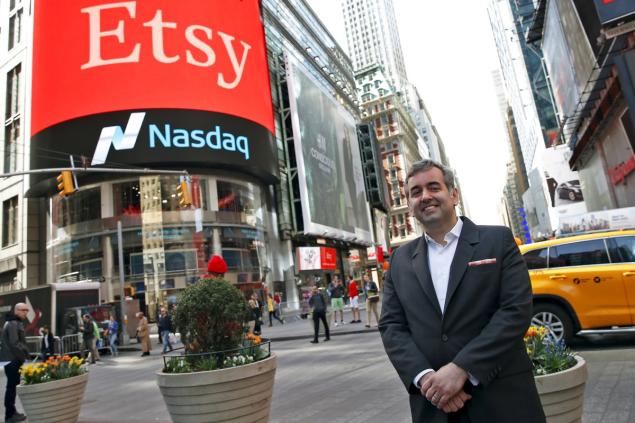
Who wouldn’t want Etsy Inc. (NASDAQ: ETSY) to succeed?
The 10-year-old e-commerce company has given artists, artisans and small manufacturers a platform to sell their goods, while giving consumers a way to buy unique merchandise – whether it be engagement rings, chandeliers or knit hats – that’s unlike anything you’ll find at the mall.
It’s a quirky, underdog sort of business that pays a lot more than lip service to the notion of corporate social responsibility. It’s also played a major role in transforming online retail, showing that it’s not just the big merchants that can play online.
Even before the company went public on April 16 in a wildly successful debut, Etsy was already a success story. It has 1.4 million active sellers and more than 50 million users – all trading in merchandise that not long ago might not have been found beyond a local trunk show. And as a certified B Corp, it’s committed to adhere to strong social and environmental practices and to be held accountable.
Etsy even designed its IPO to be more populist and less Wall Street. It capped the amount of stock that retail investors had access to, in order to make the stock available to as many individuals as possible. The company has also said that it won’t be providing quarterly or annual guidance, because it wants to remain focused on the long term.
Here’s one more thing would-be investors should know about Etsy: While its revenues last year totaled $195.6 million, it did not make a profit. The company showed a modest loss for the year of $15.2 million.
While many of Etsy’s details are compelling, the big picture is of a company still losing money with a fat $3 billion valuation, and a commitment to the long term but little visibility in the short term. Sounds like a risky investment.
Etsy is certainly a good business, and it would be a good investment at a certain price. But after debuting at $31 on the secondary market following a $16 per share IPO price, Etsy stock is looking a little expensive.
It’s interesting to note that Etsy designed its initial public offering to reach a large number of individual investors – the very people who are too often locked out of high-profile IPOs. As a general rule of thumb, unsophisticated individual investors are often drawn to consumer-facing businesses that they understand. We saw this in the first dot-com boom 15 years ago, when Pets.com became the poster child of the overpriced Internet stock.
Etsy is no Pets.com, but the simplicity of its business model offers a clear appeal for investors that a complex enterprise software maker may not. Given that these are the investors Etsy sought to reach in its IPO, it’s easier to understand why the price skyrocketed when trading began.
My advice for investors who are interested in Etsy stock? Give it time. Don’t be surprised if the shares retreat in the coming days and weeks, and watch future earnings statements to see if the company is getting closer to profitability. I want Etsy to succeed, but I’m not sold just yet.
Apple’s most closely guarded secret
On April 27, Apple blew away expectations yet again by beating Wall Street’s earnings estimates. Without a doubt, Apple is soaring higher than ever. Yet few analysts realize is that a little-known company is destined to soar right along with it. It’s Apple’s most closely guarded secret…one they would prefer you never know. Discover it right here.



